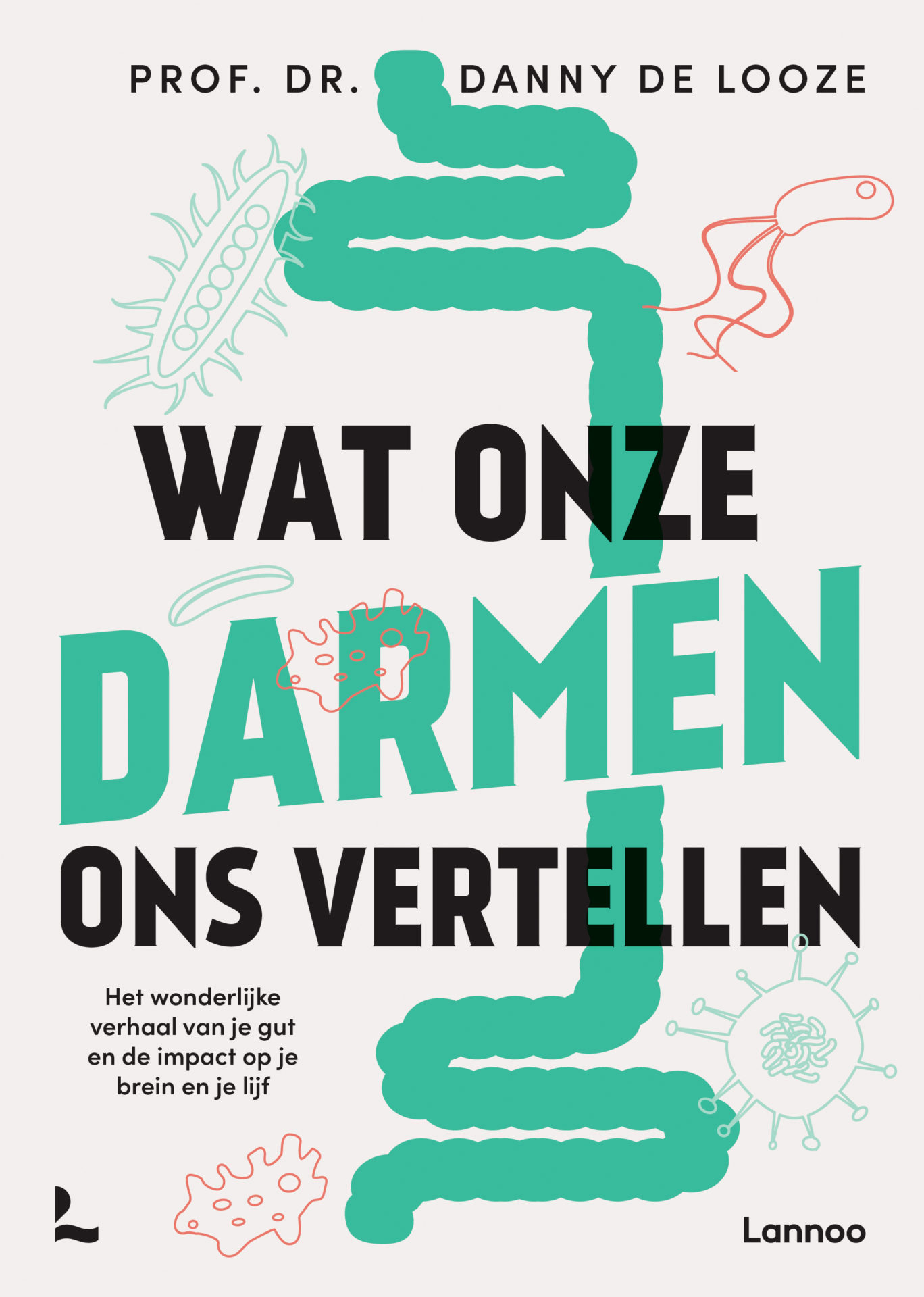
Many books have been written about the important role of the intestines in health. Nevertheless, “What our intestines tell us” by the Flemish gastrointestinal specialist Prof. Dr. Danny de Looze is recommended. This book reads like a charm, leaves no intestinal problem undiscussed and complicated matter is explained simply and with humor.
Our tastiest organ
The book starts with a clear explanation of digestion, where De Looze uses humor and calls the intestines “our tastiest organ”. He compares the stomach to a blender, the digestive juices to a sauce poured over food and the intestinal folds to the stitched folds of a curtain.
What you would rather not tell us about your stomach
The book contains 3 chapters that discuss intestinal problems. Under the title “What your stomach tells you”, De Looze discusses 16 most common intestinal complaints: from reflux to swallowing problems and from bloating to abdominal pain. For each condition there is a clear explanation of what it is, how it arises and what can be done about it. There is also a chapter on “What your intestines cannot tolerate”, with attention to intolerances to lactose, fructose and sucrose. In this chapter he also discusses irritable bowel syndrome (IBS) in detail and what the various causes can be. Consider stretching of the intestines due to FODMAPs, direct nerve stimulation due to, among other things, histamine and a disorder of the permeability of the intestines (leaky gut). In the chapter “What you would rather not tell about your stomach”, De Looze discusses taboo topics such as stoma, fistulas, hemorrhoids and fecal incontinence. The book contains a number of drawings with explanations of parts of the gastrointestinal system and is interspersed with compact boxes with facts, a short explanation or conclusions.
Disorders of gut-brain interaction
His explanations are simple throughout, but the topics that De Looze discusses are anything but simple. For example, he talks about the gut-brain axis and associated “Disorders of gut-brain interaction”, stool (fecal) transplants, Bristol Stool Chart, peanut clinics, GLP-1 and SIBO. He also provides a clear overview of the current state of research into the role of the gut microbiome in obesity, mental health, Crohn’s disease, ulcerative colitis, Alzheimer’s and Parkinson’s disease. “It’s all very fascinating,” he writes. ‘Who knows where we will be in 20 years and what else we will discover. But in all the euphoria, there is little concrete translation to the clinic that can be used.’ According to him, a (slight) benefit of probiotics has been shown in people with irritable bowel syndrome, especially if they suffer from a bloated abdomen. But he is more skeptical about commercial analyzes of the intestinal microbiome: ‘We don’t actually know enough about it yet to interpret an individual microbiome, let alone change it.’
What our intestines tell us. The wonderful story of your gut and the impact on your brain and body. Prof. Dr. Danny de Looze, Lannoo, ISBN 9789401492348, 224 pages, € 25.99




